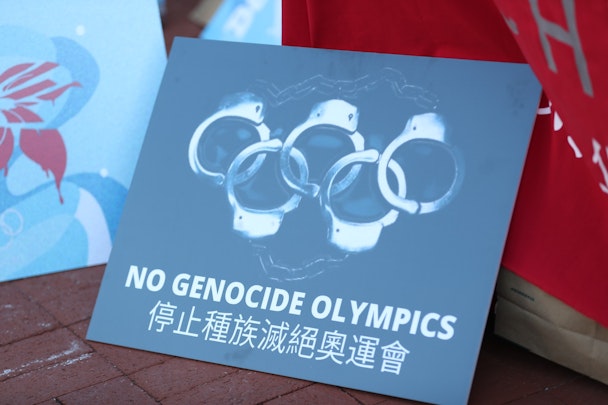The Beijing Winter Games: has brand enthusiasm cooled?
The Olympic games, along with being a great platform for the display of the sporting prowess of world-class sportsmen, is also a huge marketing event for brands. However, at the ongoing Beijing 2022 Olympic Winter Games, the usual hullaballoo of brand marketing has been replaced by a deafening silence, says Dipanjan Chatterjee, vice president and principal analyst, Forrester Research.

The Beijing Games: a mixed bag for brands amidst Chinese whispers
When it comes to commanding the attention and adulation of a global audience, you can't do much better than the Olympic Games. Not surprisingly, these Games are fertile territory for brands to flex their marketing and sponsorship muscles. The lead sponsors comprise an elite ‘tops’ group, paying a princely sum in exchange for privileged access and exclusive assets (like the hallowed five-ring logo). But at the Beijing 2020 games, the usual hullaballoo of brand marketing has been replaced by a deafening silence.
At the heart of the silence are allegations of human rights transgressions by the host country. The U.S. government has pulled diplomatic participation, and countries like Britain and Canada have followed. Activists have been pressuring sponsor brands to speak out against the allegation and take a stand. The U.S. Congress has held hearings to cross-examined executives from many of these sponsoring companies. Yet, for brands, mum's the word.
Many brands have been vocal on social issues like fairness and equity in the last few years. But when it comes to the Beijing Olympics, some of these same brands have opted to remain silent. Their reticence stems from the harsh reality that companies must perform a delicate balancing act between feeding the profit engine and the social purpose engine. And the two don't always work in unison.
The Chinese market is not to be trifled with. The lead sponsors of the Beijing Games are estimated to generate over $100 billion in annual revenue from the Chinese market – that's more than the GDP of countries like Kenya or Ecuador and puts a lot at stake for these brands. More than a quarter of Intel's revenue is from China, and Toyota and Samsung generate over $30 billion in revenue from that market. China is the world's largest apparel and footwear market. Companies will think long and hard before jeopardizing an opportunity of this magnitude.
The risk is especially high because of a history of swift retribution. When brands have taken a position perceived as anti-Chinese, they are quickly met with denouncements, social media backlash, and boycotts, all of which amount to tangible financial impact. Companies like Adidas, Burberry, and H&M have endured revenue declines after raising concerns about human rights in China. With much to lose and the likelihood of retaliation high, companies have chosen not to prod the Chinese market to their detriment.
But there's another side to this story. Brands risk antagonizing an increasingly social value-conscious consumer base in markets like the United States and Europe by staying silent to appease the Chinese market. There is growing antipathy towards China in the U.S. – 67% of Americans have a negative outlook concerning China, up from 46% in 2018, and allegations of human rights abuse have a sympathetic ear. But there is plenty of evidence that the consumer's bark may be worse than their bite.
Forrester's analysis shows that social values-motivated consumers who make purchase decisions based on principles comprise 18% of the U.S. population - not a number to be trifled with, but certainly not the social tsunami one might expect. Our research on cancel culture and similar boycotts show that while consumers quickly call out the issue, they seldom follow through with meaningful action.
Brands are betting on riding out any discontent. Many of them contracted their long-term support well before host nations were chosen and now feel trapped in the glare of negative publicity. They've dialed down global advertising, focusing instead on targeted advertising with Chinese elements to cater to the domestic market. And they're getting ready for the 2024 Paris Games, where they hope the spotlight will be solely on the athletes and not on the brands' reluctance to take a stand.
Dipanjan Chatterjee is vice president and principal analyst at Forrester Research.
